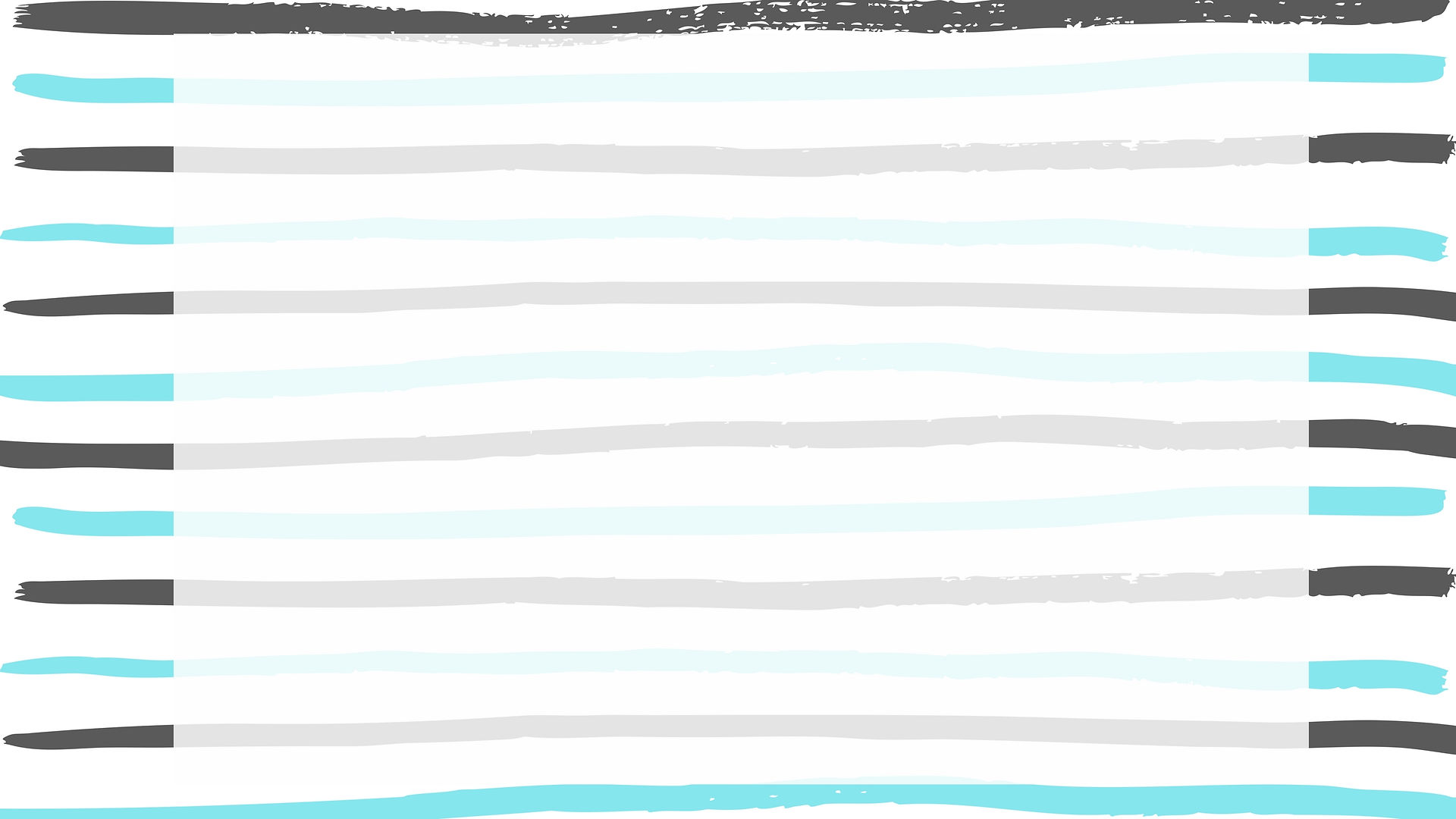


Questioning National Stereotypes – A Guided Tour Through UAE History
-Caroline Maria Dsouza
“Nothing is off limits, nobody will laugh at you, and we won't tell the CID,” was the opening gambit from Debbie Jaunich, our UAE national guide from the Arab Culturalist in an insightful zaar down memory lane that the Artistic Culture participated on the 10th of February 2016.
But before this, it took curiosity and the promise of a lot of good food to make waking up at 7am on a Saturday morning worth it. From the very first minute of the trip which was to get on the bus by 9 am to the last sessions of question and answer, every minute of that day seemed to teach something new.
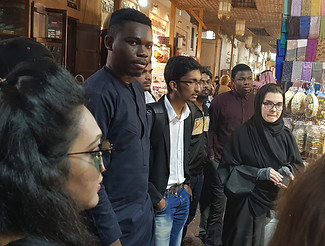

Middlesex University Dubai took twenty-five students on a trip to Old Dubai’s key sights - Spice Market, the Gold Souk, and Heritage house - with Arab Culturalists, Debbie Jaunich and Dahlia Kayed.
The Spice market was fascinating – especially with the intense colours and scents in the air. In fact, this location was previously a pharmacy offering a mix of spices to cure the inhabitants’ illnesses. Who knew that UAE spices were essentially medicines?
Dressed in an authentic, night black, abaya and hijab 40-something Debbie Jaunich explained that: "Seventy percent of the spices in the spice souk used to come from India in return for pearls from the UAE. The main source of trade in Dubai was because of their pearls. It was the trade of pearls that put Dubai on the map."
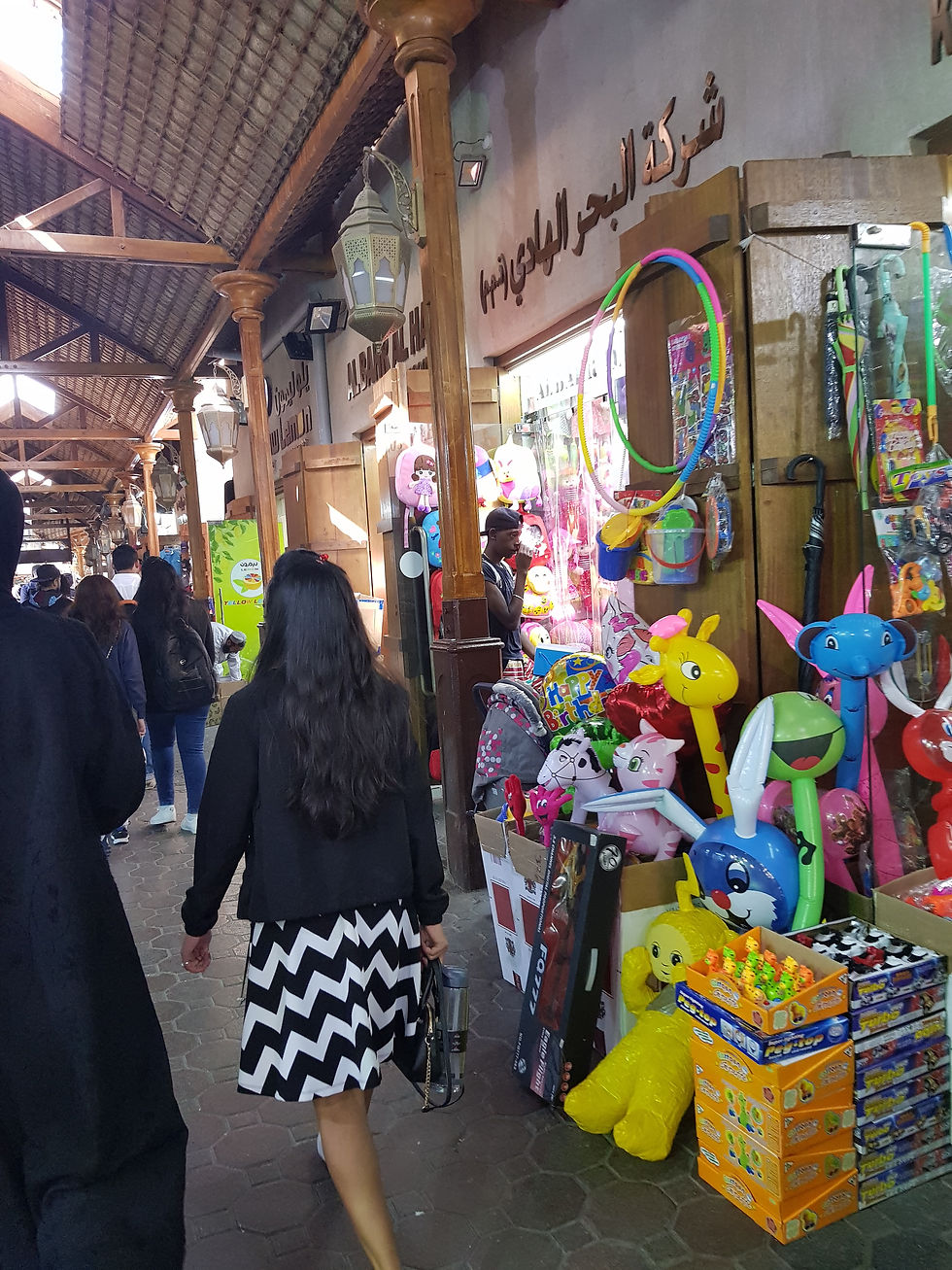
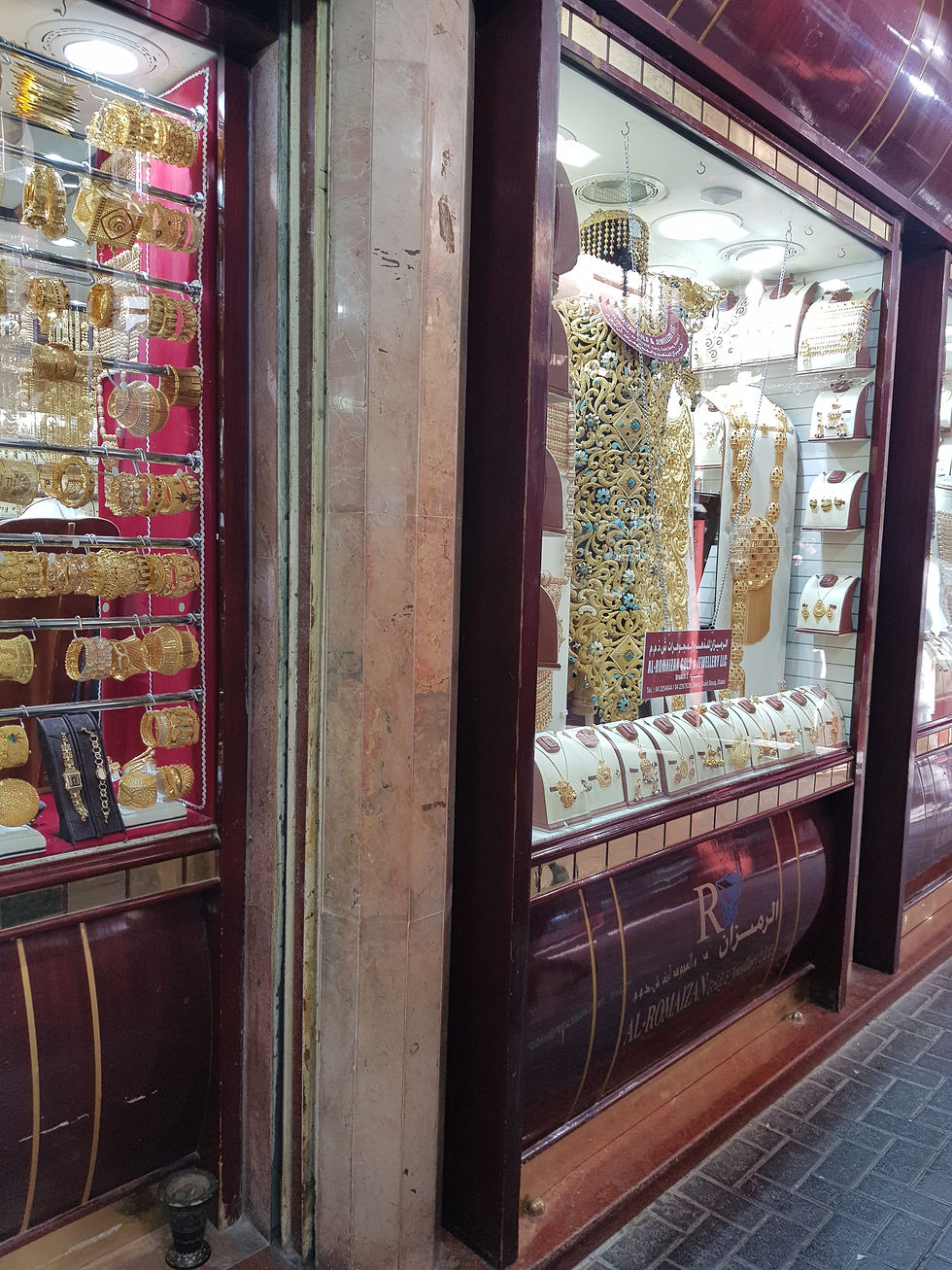
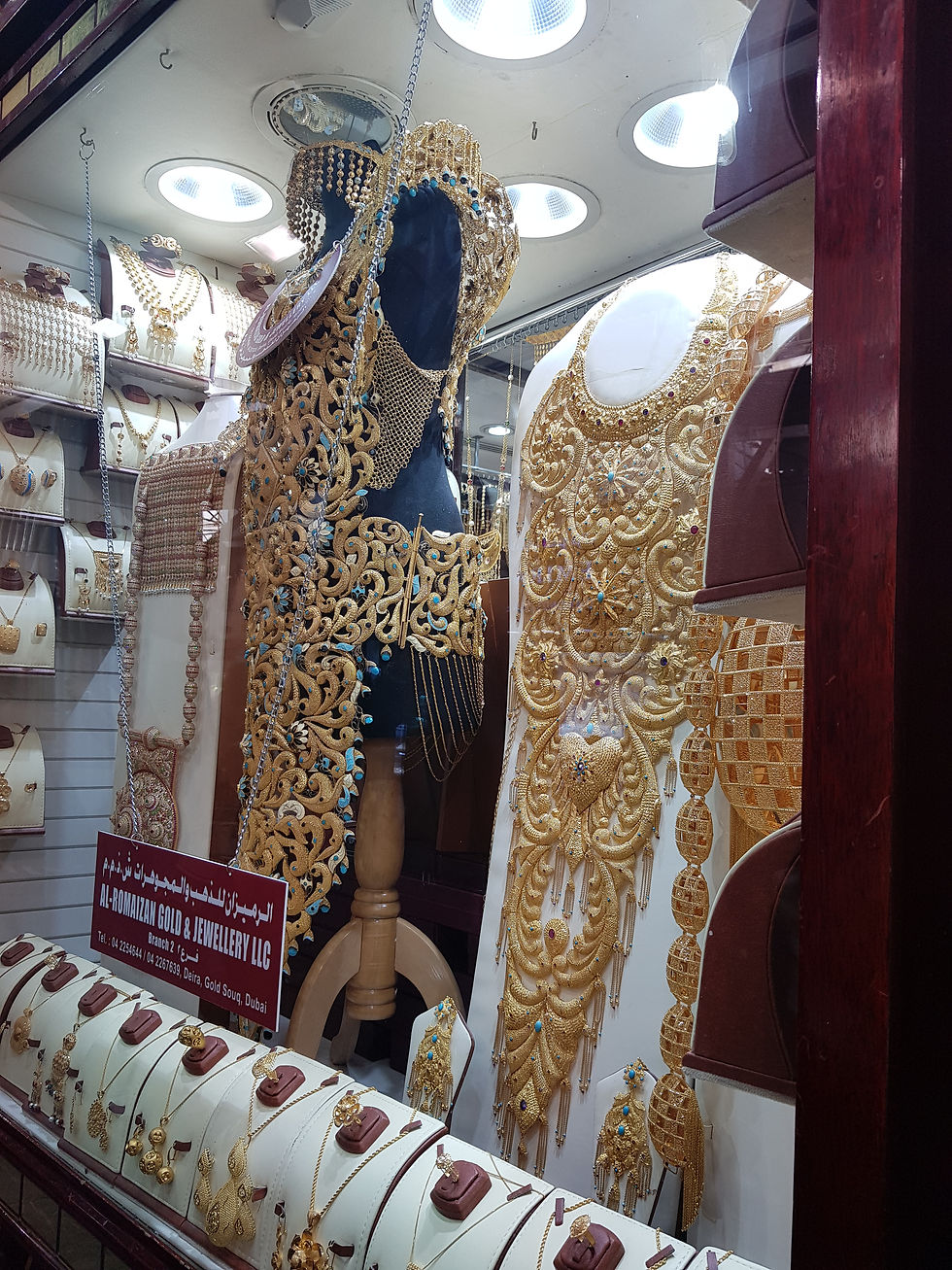

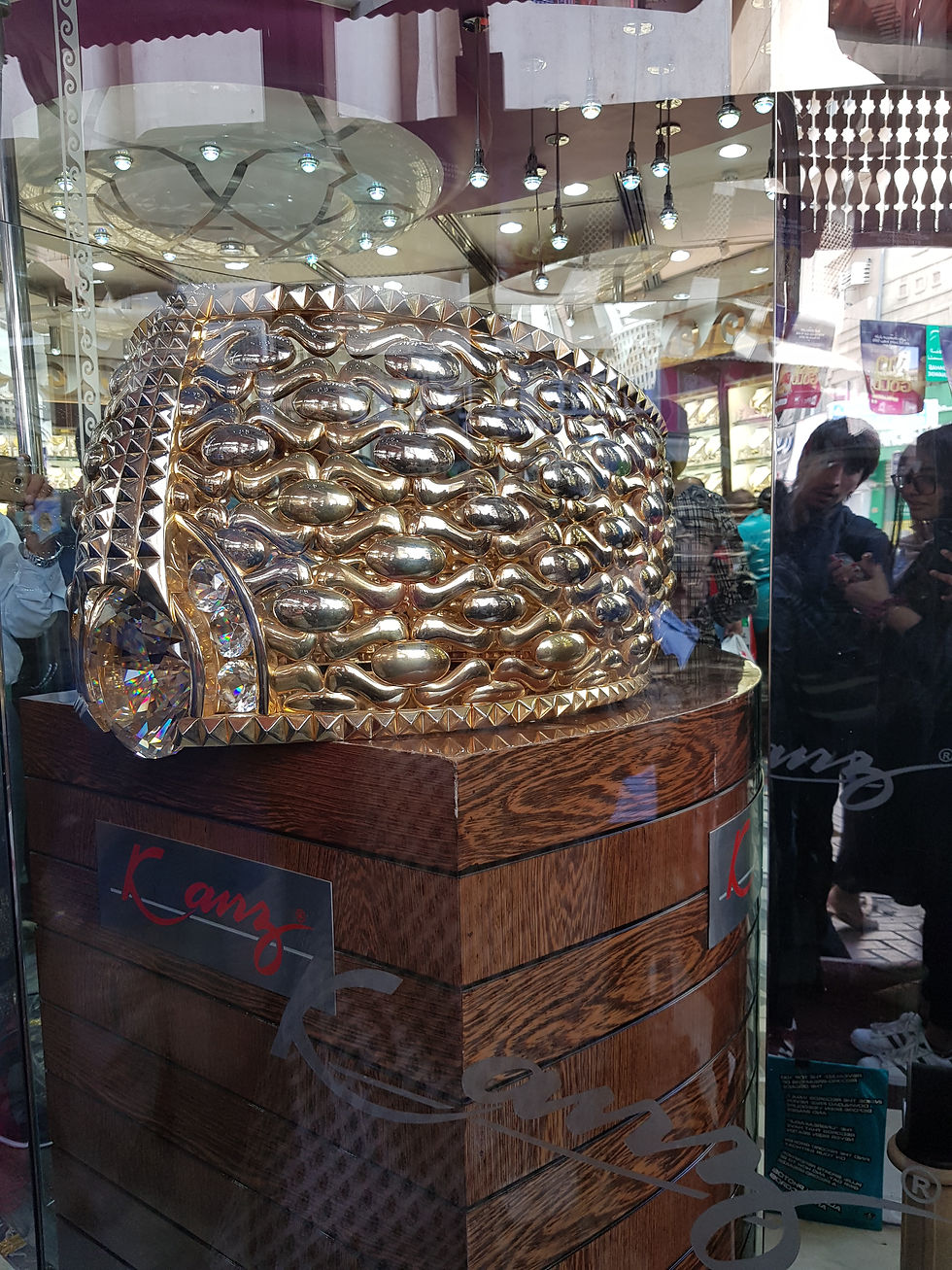
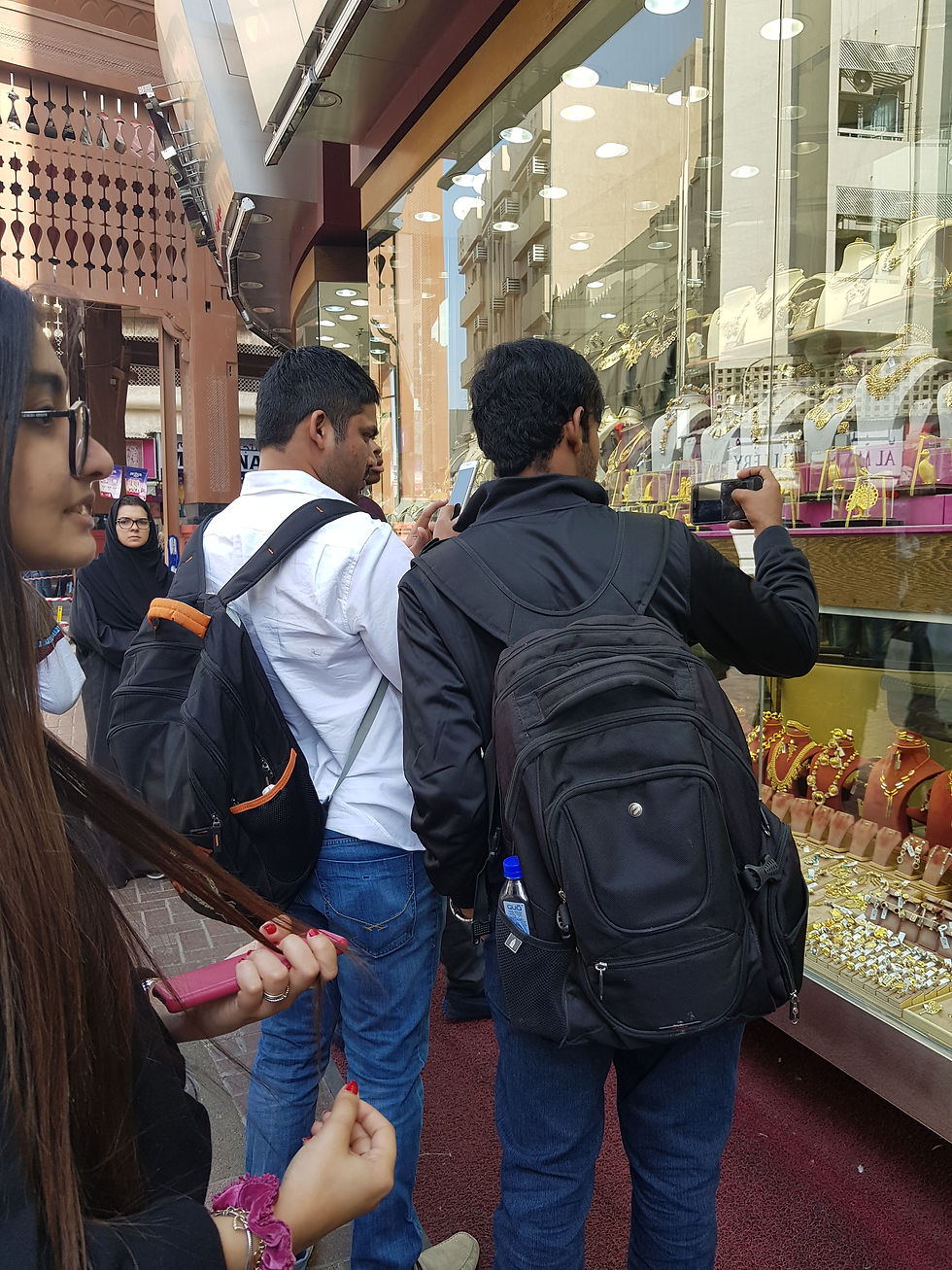
Our next stop was the Gold Souk, home to the heaviest gold ring in the world, almost 63.856 kg. It was exciting eavesdropping into student conversations about the grand wedding plans that were inspired by that ring. But this wasn’t even the most valuable item in the Souq another item was valued at over three million dirhams.
Debbie was accompanied by a younger colleague, Dahlia Kayed, who was similarly dressed but clearly a millennial. She explained "At any given moment, there is about seven tonnes of gold in the souk. Gold is very important in Emirati culture because its worth always stays. When a girl gets married, it is the gift [of gold] rather a financial dowry she receives,".
It was soon time for coffee and Emirati food. The students moved to heritage house and settled in a divan (hall) to enjoy what they had been waiting for all day. However, the halt at Heritage House was not just for refreshments but also for questions. "Nothing is off limits, nobody will laugh at you, and we won't tell the CID," said Debbie Jaunich to the students.
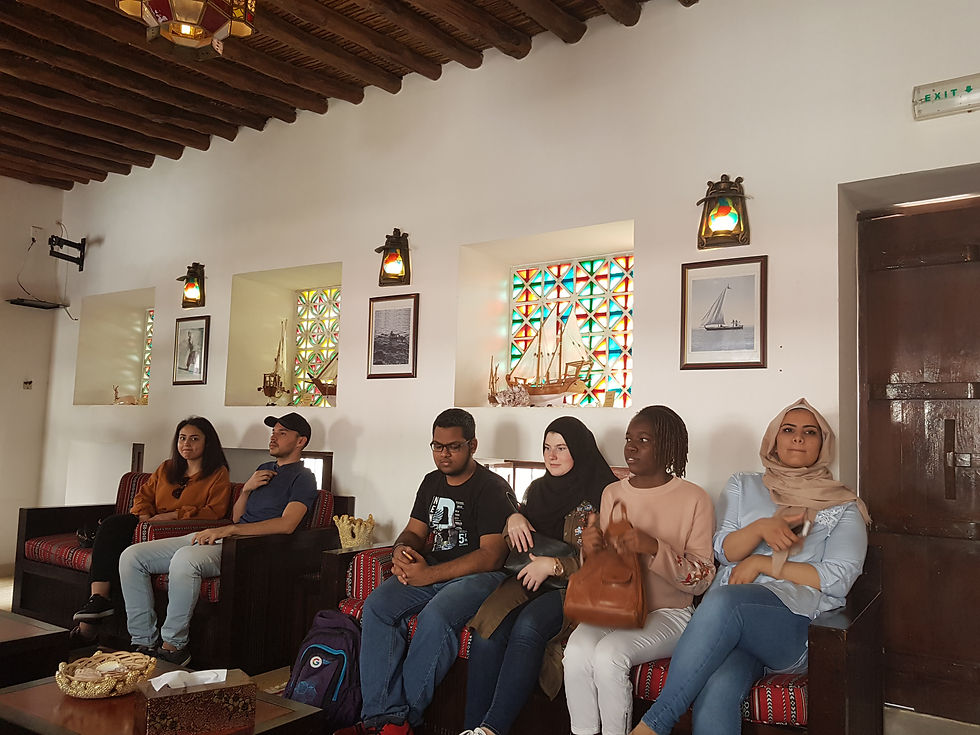
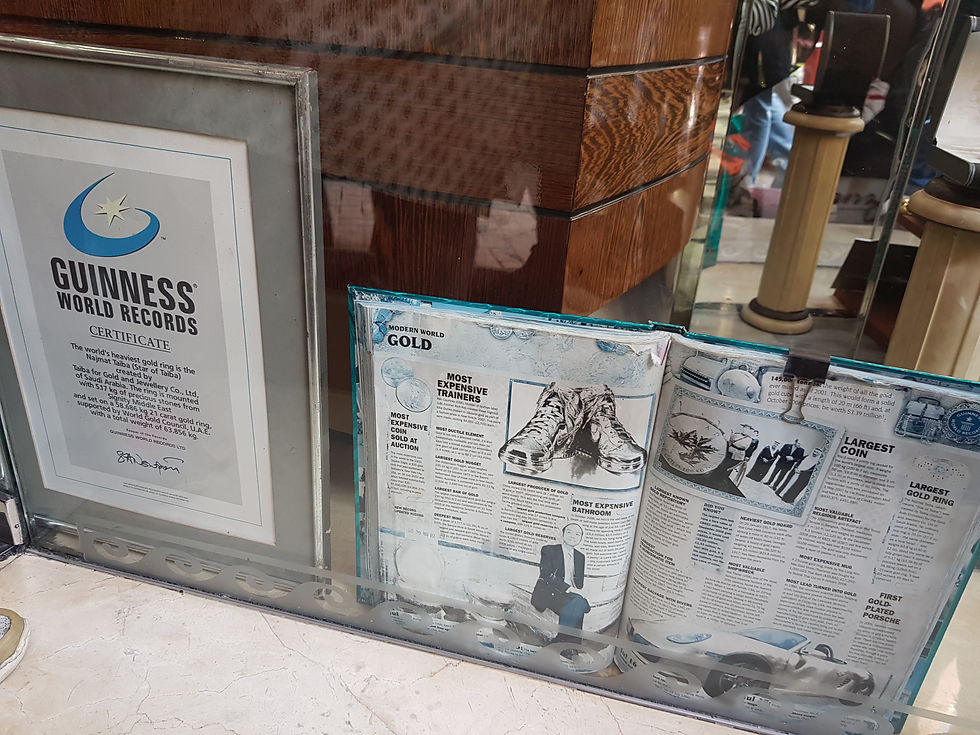
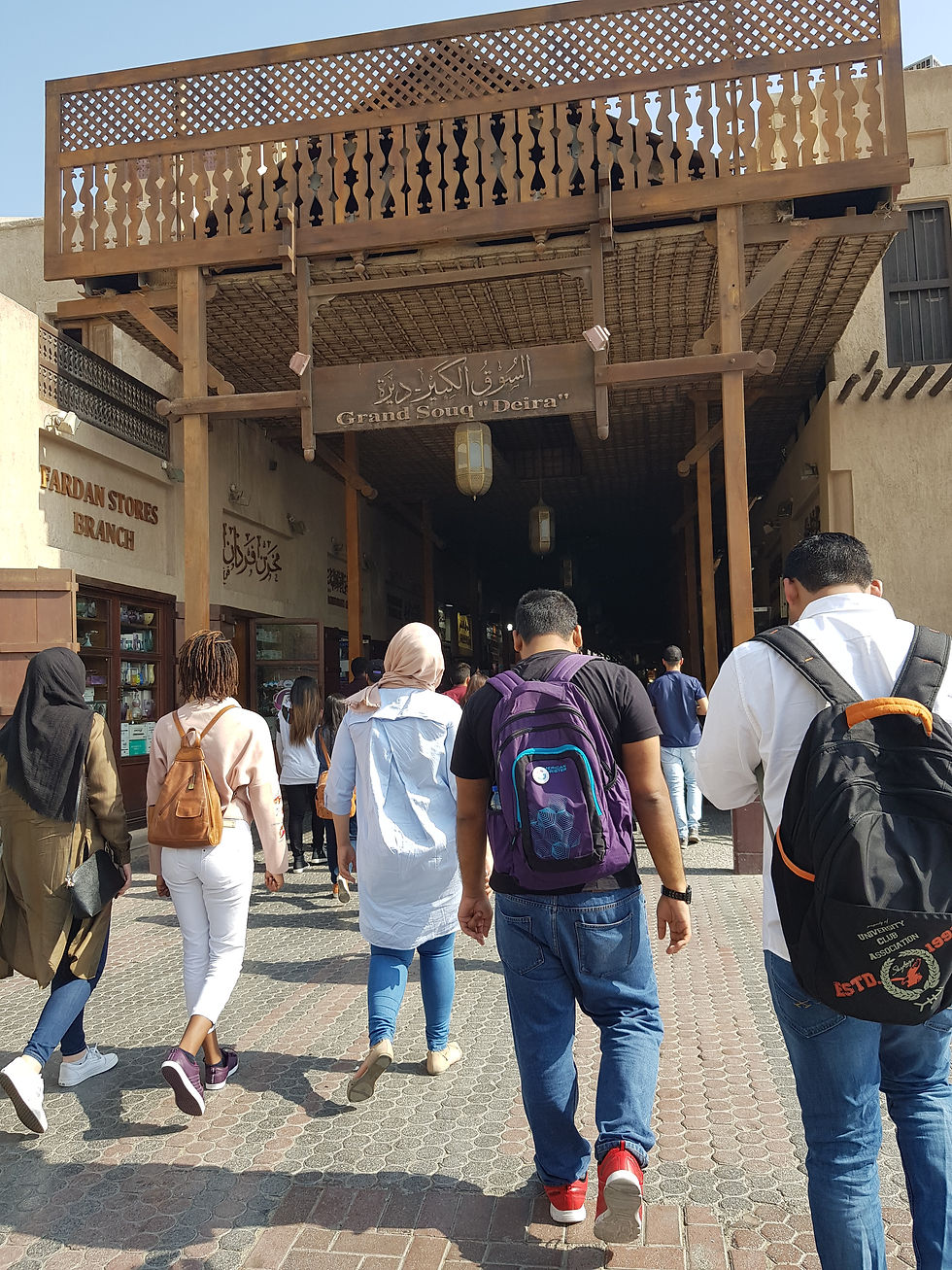

Apart from all that they already learned, questions about trade and what women would do at home in early Dubai were answered. Ms. Dahlia told the students that women took care of everything else when the men went pearl diving. Pearl diving was not a week's trip. Instead, it would go on for months.
When asked about why it is important to educate people about Emirati culture, Dahlia responded saying, "People have a lot of misconceptions about the Arab world especially the UAE since it has been in the spotlight. They would ask their Emirati friends, they would ask me the many questions they had, and sometimes I felt like I was being attacked because I did not know the answers."
On being asked about why she chose to take up this job, Ms. Dahlia answered, "As I said earlier, people have a lot of questions, but no answers and they fear to ask because it is out of their comfort zone. So, if you're able to answer their questions, they won't have any stereotypes. I have been doing this for six years, and as long as I can, I will continue informing people about the Arab world."